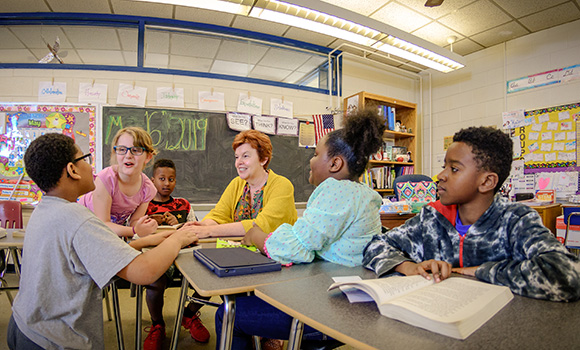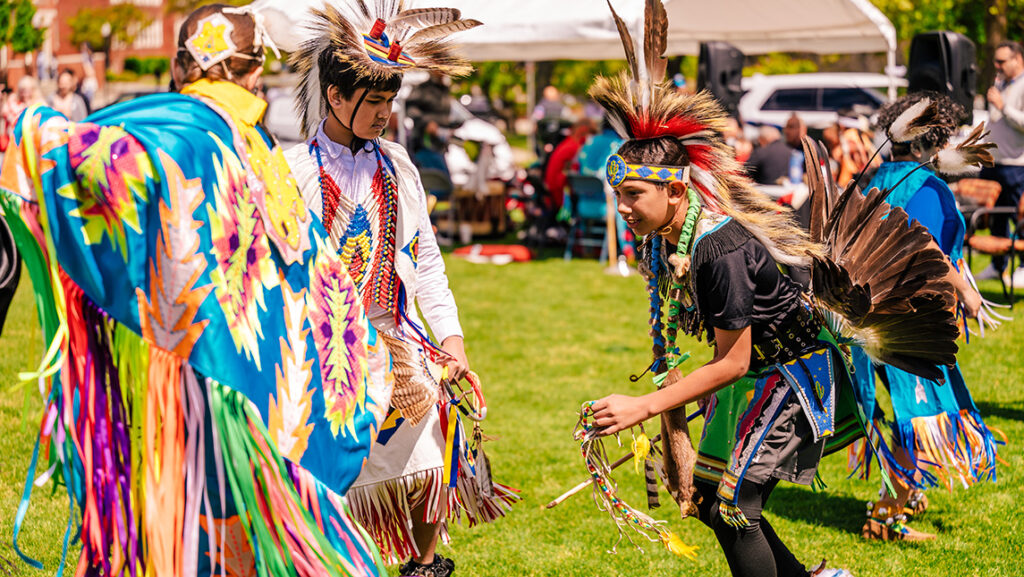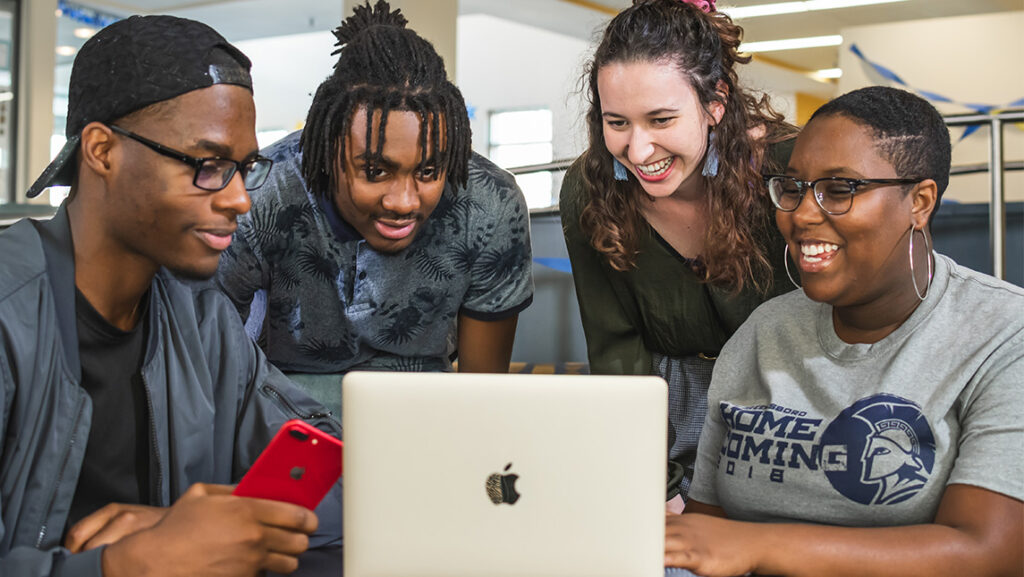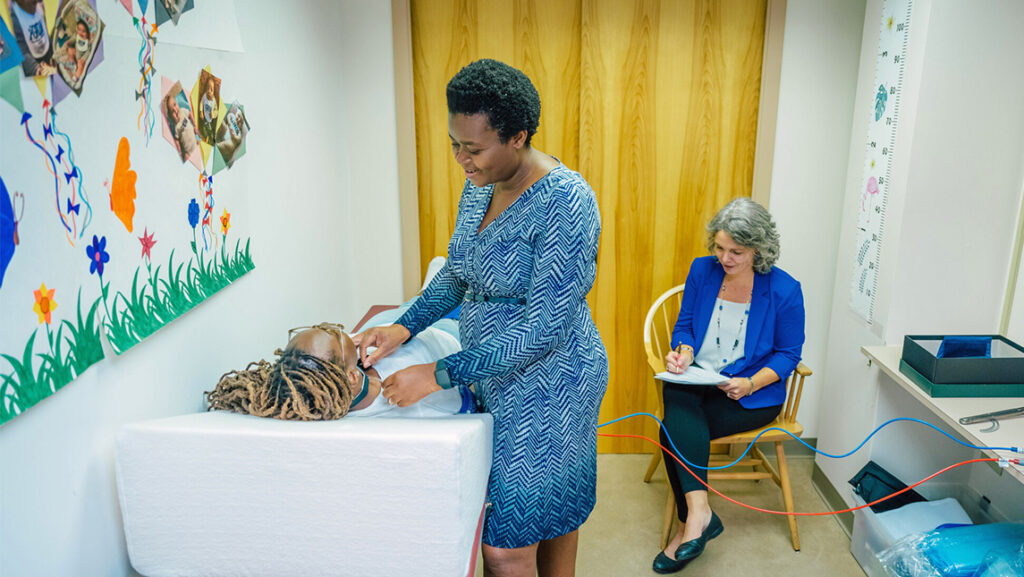Moss Street Partnership School – MSPS – isn’t your average “lab school.”
In fact, MSPS avoids that term, though it’s used in the 2016 legislation that created this and similar schools in low-performing districts across the state.
UNC Greensboro faculty and MSPS staff want people to understand this isn’t a scenario in which a university goes into a community, overhauls a school, and then steps back to do its own research.
“We really believe in the idea of doing things together. The teachers’ work informs the faculty’s work, and vice versa.” — Dr. Christina O’Connor
This is anything but that. What’s happening in Rockingham County is a partnership – among UNCG, the school district, and the community. Researchers, teachers, students, and their families are working together to create an environment of authentic teaching and learning that will ultimately change the trajectory of these students’ lives and transform the community.
With just one year under their belts, researchers and staff will tell you that there’s still a lot to learn. But if the success they saw in the first year – engaged reading, STEM integration, and gains in social and emotional learning – are any indication, there’s a lot to be excited about for the future.
UNCG School of Education’s Dr. Carl Lashley and Dr. Christina O’Connor serve as co-directors of the school. Tina Chestnut, who attended Moss Street when she was a girl, was hired in the summer of 2018 as the MSPS principal and associate director. Dr. Allison Ormond, a doctoral alum of UNCG’s School of Education and N.C. Teacher of the Year, serves as associate director for curriculum.
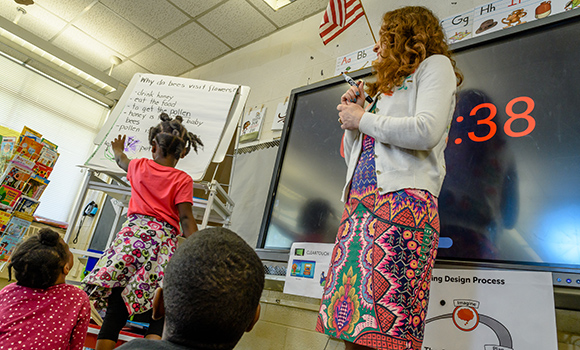
What sets MSPS apart? Teacher autonomy, a focus on STEAM – science, technology, engineering, arts, and mathematics – and experiential learning.
Traditional school settings typically utilize prepackaged curricula, prescriptive lesson plans, and pacing guides. Often, the result is that teachers – and their expertise and experience – get left out of the equation.
That’s why if you ask UNCG researchers how to best facilitate teaching and learning, they’ll tell you it’s anything but pre-packaged curriculums. It’s letting teachers do what they do best – teach kids – in experiential, collaborative, and interdisciplinary environments that move the needle for student learning.
This kind of environment is what enticed Chestnut to return to the school she attended as a child, and led as a principal a few years ago, during its Moss Street Elementary School days.
“These kids deserve to have access to education that is relevant to them and that engages them,” Chestnut says. “Traditional ways of teaching and learning have not proven effective in Title I schools like Moss Street. Rather than adopting specific programs, we look at the North Carolina standards and then figure out how can we facilitate learning using our guiding principles.”
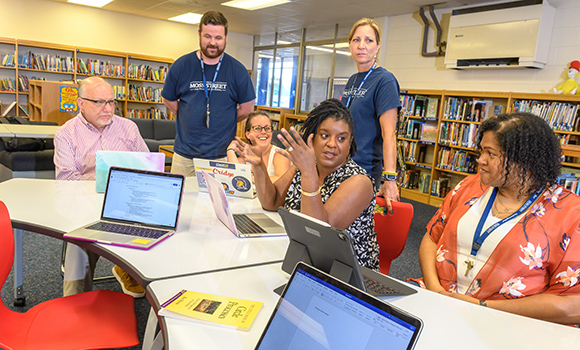
And this is where UNCG researchers come in. Over the past year, UNCG faculty have worked alongside teachers to help bridge theory and practice.
They haven’t conducted formal studies, yet. They’ve been talking to teachers about their needs, sharing their research expertise, and working in classrooms to see what kinds of small interventions may prove successful.
They’ve been “tinkering,” as one faculty member describes it – researchers alongside teachers.
“We really believe in the idea of doing things together,” says O’Connor. “The teachers’ work informs the faculty’s work, and vice versa.”
Just how innovative is MSPS? When it comes to experiential learning or STEAM education, the school isn’t reinventing the wheel. But the way it’s piecing these different components together, in a low-performing, high-needs school in rural North Carolina? That’s exciting for O’Connor, even after 25 years working in public education.
“To do it this way, in this context – I haven’t seen this before.”
The post originally appeared in UNCG Research Magazine as part of a larger story on Moss Street Partnership School. To read more and to view additional images, visit researchmagazine.uncg.edu.
Story by Alyssa Bedrosian, University Communications
Photography by Martin W. Kane, University Communications
